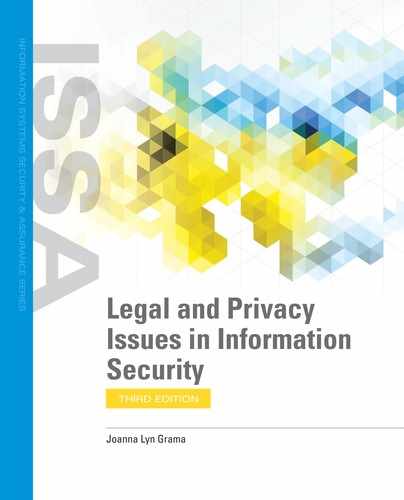1. Obscenity is easy to define.
A. True
B. False
2. Website operators who attempt to restrict access for children may be accused of violating basic rights. What amendment concerns these rights?
A. First Amendment
B. Fifth Amendment
C. Ninth Amendment
D. Tenth Amendment
3. Which law is designed to protect children’s personal information while they are using online resources?
A. CIPA
B. COPPA
C. FERPA
D. Bill of Rights
E. All of these are correct.
4. COPPA defines “child” as anyone under the age of ________.
5. How can a website operator verify parental consent to comply with COPPA?
A. Using signed, printed forms
B. Using toll-free numbers
C. Using email
D. Using signed, printed forms and toll-free numbers
E. None of these is correct.
6. A website is collecting information on children. What must be included on the website to comply with COPPA?
A. Parental consent forms
B. Privacy policy
C. Definition of children
D. a Contact Us page
E. All of these are correct.
7. Libraries and schools that accept E-Rate funds must comply with ________.
8. Libraries and schools that accept E-Rate funds must implement a ________ to filter objectionable content.
9. CIPA requires certain content to be restricted for minors. How old is a minor?
A. Anyone under the age of 13
B. Anyone under the age of 16
C. Anyone under the age of 17
D. Anyone under the age of 18
E. Anyone under the age of 21
10. CIPA requires a library to be able to disable the TPM for some situations.
A. True
B. False
11. What law governs the release of student educational information?
A. CIPA
B. COPPA
C. FERPA
D. Department of Education
E. All of these are correct.
12. Under FERPA, what type of information can a school release about a student without the student’s consent?
A. Directory information
B. Personally identifiable information (PII)
C. Name and student ID number
D. All of these are correct.
E. None of these is correct.
13. A parent believes a school is not following FERPA requirements. After trying to resolve it with the school, where can they file a formal complaint?
A. FERPA compliance office
B. Family Policy Compliance Office
C. Federal Communications Commission
D. Federal Trade Commission
E. Office of Federal Student Aid
14. What must a school obtain before releasing information about a student to a third party?
A. Verbal consent
B. Written consent
C. Signed affidavit
D. Notarized consent
E. Nothing
15. Disciplinary records are a part of educational records.
A. True
B. False
